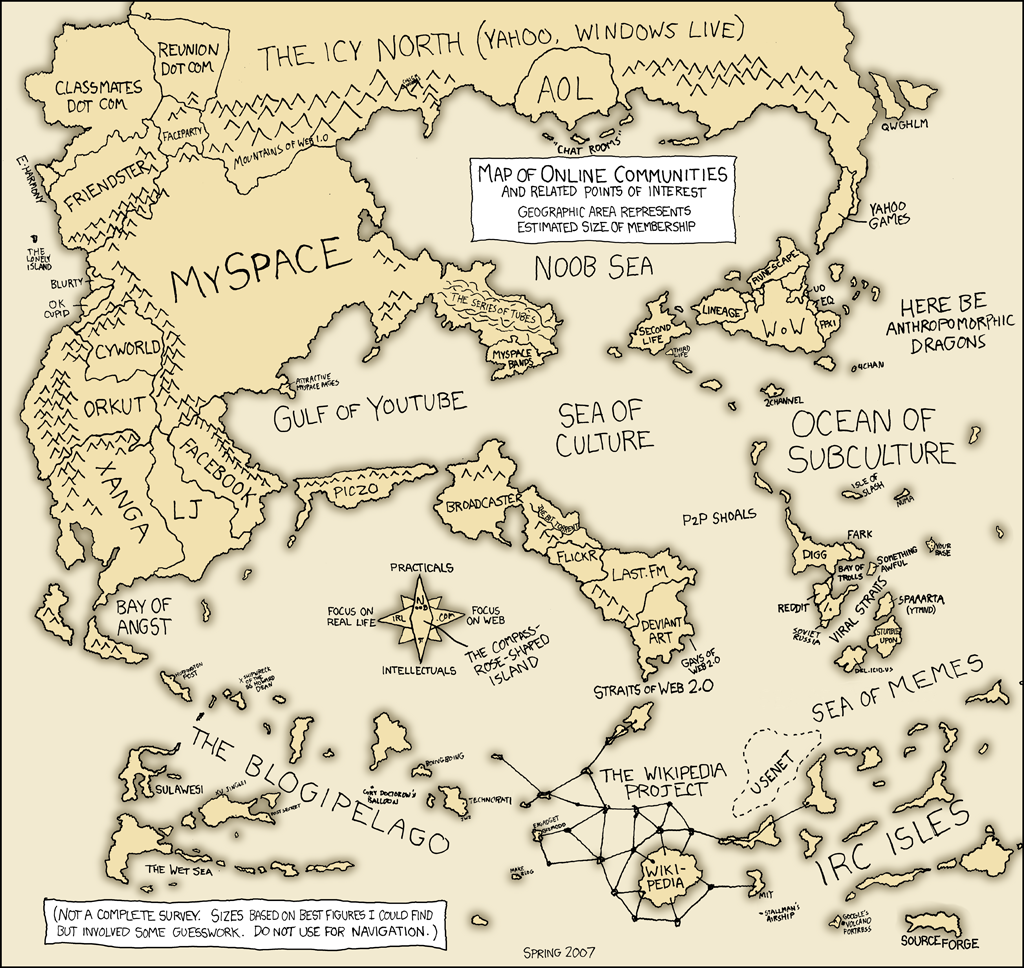Web Search, is Google the ultimate monster?
(Revised at Sept. 29, 2007) If investing on web technologies is buying jewelry, web search technology is the most brilliant diamond on top of these jewelries. A recent post about Top 17 Search Innovations Outside Of Google at Read/WriteWeb attracted hundreds of click and dozens of comments again. Google or Post-Google, this question attracts eyeballs.
If investing on web technologies is buying jewelry, web search technology is the most brilliant diamond on top of these jewelries. A recent post about Top 17 Search Innovations Outside Of Google at Read/WriteWeb attracted hundreds of click and dozens of comments again. Google or Post-Google, this question attracts eyeballs.
New companies may beat Google, but not by the Google way. At present, this claim represents not only innovation of search technologies, but also revolution of basic web search strategies. As I discussed in an earlier post, unlikely we can build another, more advanced "semantic Google" to beat the current Google. To defeat Google in real, the basic strategy of web search must experience a revolutionary change.
The current web search strategy can be summarized as the oracle-based web search. When web users search information, they look for oracles from the "Gods of the Web." These "Gods" are search engines, which are assumed knowing about the Web way more than us as normal persons know. Among these "Gods" the greatest one is Google. In the current WWW, Google is the "God." We beg for the oracles from it to access expected web resources. If there are no answers from Google, by convention we just believe that there are no answers to our question on the Web. This scenario typically shows how much we have trusted and relied on this "God." Although nearly all of us know that Google often makes mistakes and even Google can only search a comparatively small portion of all web resources, we indeed have barely better choices. To many companies, competing a better Google rank is a premier task. Isn't it a pity to make the life miserable because of some non-existing "God?"
This is not the first time in history we humans have this experience. In almost all the ancient countries, our ancestors had worshiped various non-existing Gods and begged for vague oracles from them. During the period of these dark days, formal education was not prevailed. Knowledge was primarily holden in the hand of few priests who were "servants" to the various Gods. These priests produced vague oracles using the names of these non-exiting Gods to control the mind of people. If even priests could not answer a question, normal people at the meantime had to believe that there were no answers to the question. Asking priests was the primary way to access knowledge of the unknown world. This scenario is exactly the reflection to the current stage of web search. How did our ancestors get out of this darkness? The answer is one word --- education! The prevalence of formal education liberated humans out of the control of vague oracles. When knowledge education was prevailed, people found new ways to look for the unknown. Rather than to be new priests who generally know everything, the new knowledge education system educated normal persons to be specialists of various domains. Therefore, people no longer needed to look for vague oracles from priests. In contrast, they looked for much more clear and precise advices from particular domain specialists. They no longer laid the hopes on the shoulder of the man-made Gods. They started learning to help each other by sharing individual knowledge. This was the great Renaissance. Such a formal education and social system became the basis of our modern society.
How did our ancestors get out of this darkness? The answer is one word --- education! The prevalence of formal education liberated humans out of the control of vague oracles. When knowledge education was prevailed, people found new ways to look for the unknown. Rather than to be new priests who generally know everything, the new knowledge education system educated normal persons to be specialists of various domains. Therefore, people no longer needed to look for vague oracles from priests. In contrast, they looked for much more clear and precise advices from particular domain specialists. They no longer laid the hopes on the shoulder of the man-made Gods. They started learning to help each other by sharing individual knowledge. This was the great Renaissance. Such a formal education and social system became the basis of our modern society.
The evolution of web search will follow a similar path. Sooner or later, the "Gods of the Web" will gradually step down from the stage. Though the algorithms about centralized web search are improving, the speed of knowledge accumulation is much faster than the improvement of the algorithms. This was the essential reason why in old days the priests could no longer pretended to be Gods. The set of knowledge was simply become too much to be holden by small groups. Educating everyone became the sole solution, and it did work.
What is an educated web? The educated web is the Semantic Web. To build this educated web, we need to prevail the cognition of eduction. On the Web, it means the cognition that we need to educate machines. The progress of constructing semantic web is not to build a system. No, we do not build a system; but we educate individuals and the network of these individuals automatically is an educated web.
The specialist-based search (i.e. a combination of vertical search and collaborative search) will gradually replace the oracle-based search. Engaged with more and more user-generated tags, the web is moving towards this direction. What is still lacking now is advocates of web education of machines. But we are certainly on the right track.
Final Address
Don't try to build another Tower of Babel. Our ancestors had tried once, and the attempt was failed. If the physical tower failed, could we succeed in building a mental Tower of Babel? I doubt it strongly. Constructing the Semantic Web is not to build a Tower of Babel. It is to simulate our modern human society. It is impossible to achieve "Semantic Google." But Semantic Web will still be available. At the day, however, there are no noble seats reserved for an oracle-announcer Google.
For readers who like to know more about this vision of web evolution, the Part 2 of the web evolution article is an old but coherent version of the view. A newer version is in this blog, the series of "A View of Web Evolution." (Follow the tag web evolution and you can get it.) Any comments are far more than welcomed.
Trackback:
Saravanan's post: Beat Google!

